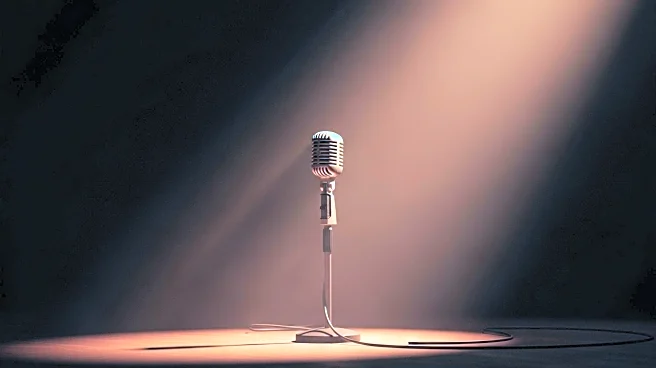What's Happening?
Billy Strings, a Grammy-winning singer, songwriter, and guitarist, has released a new album titled 'Live at the Legion.' Known for his unique blend of traditional bluegrass and improvisational jam music, Strings discussed his personal journey and artistic evolution in a recent interview. He shared insights into how songwriting has been a healing process for him, particularly after performing on the day his mother passed away. Strings also reflected on how becoming a father has influenced his music, stating that he now sings from a place of freedom and joy. The interview also featured a review by jazz critic Martin Johnson of an album by harpist Brandee Younger.
Why It's Important?
Billy Strings' new album and personal reflections highlight the evolving landscape of bluegrass music, where traditional elements are increasingly blended with modern improvisational styles. This fusion not only broadens the genre's appeal but also attracts a diverse audience, potentially revitalizing interest in bluegrass music. Strings' candid discussion about personal loss and fatherhood adds depth to his artistic narrative, resonating with listeners who appreciate authenticity and emotional expression in music. His influence may inspire other musicians to explore similar themes, contributing to a richer, more varied musical tapestry.
What's Next?
As Billy Strings continues to evolve as an artist, his new album 'Live at the Legion' is likely to attract attention from both traditional bluegrass fans and those interested in jam music. The album's reception could influence future collaborations and performances, potentially leading to more experimental projects. Additionally, Strings' personal journey may inspire other artists to explore themes of healing and transformation in their work, fostering a community of musicians who prioritize emotional authenticity.
Beyond the Headlines
Billy Strings' approach to music, blending traditional and modern elements, reflects broader cultural shifts towards inclusivity and diversity in artistic expression. His openness about personal experiences, such as dealing with loss and embracing fatherhood, may encourage conversations about the role of music in personal healing and societal change. This could lead to increased support for artists who use their platforms to address personal and social issues, further enriching the cultural landscape.










